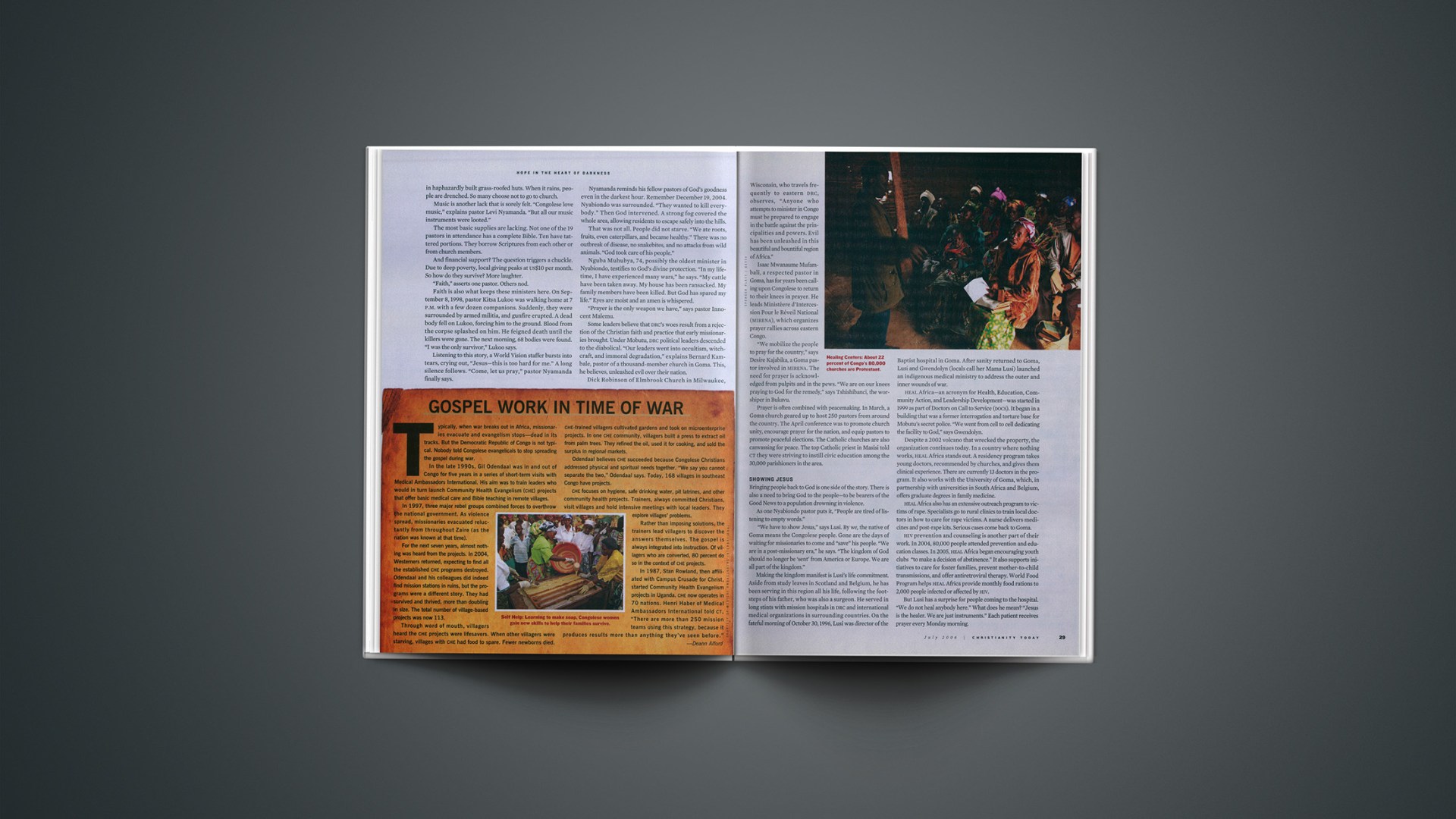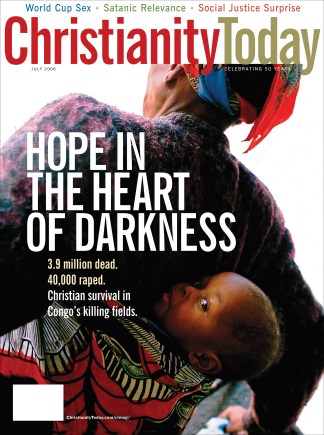Typically, when war breaks out in Africa, missionaries evacuate and evangelism stops—dead in its tracks. But the Democratic Republic of Congo is not typical. Nobody told Congolese evangelicals to stop spreading the gospel during war.
In the late 1990s, Gil Odendaal was in and out of Congo for five years in a series of short-term visits with Medical Ambassadors International. His aim was to train leaders who would in turn launch Community Health Evangelism (CHE) projects that offer basic medical care and Bible teaching in remote villages.
In 1997, three major rebel groups combined forces to overthrow the national government. As violence spread, missionaries evacuated reluctantly from throughout Zaire (as the nation was known at that time).
For the next seven years, almost nothing was heard from the projects. In 2004, Westerners returned, expecting to find all the established CHE programs destroyed. Odendaal and his colleagues did indeed find mission stations in ruins, but the programs were a different story. They had survived and thrived, more than doubling in size. The total number of village-based projects was now 113.
Through word of mouth, villagers heard the CHE projects were lifesavers. When other villagers were starving, villages with CHE had food to spare. Fewer newborns died. CHE-trained villagers cultivated gardens and took on microenterprise projects. In one CHE community, villagers built a press to extract oil from palm trees. They refined the oil, used it for cooking, and sold the surplus in regional markets.
Odendaal believes CHE succeeded because Congolese Christians addressed physical and spiritual needs together. “We say you cannot separate the two,” Odendaal says. Today, 168 villages in southeast Congo have projects.
CHE focuses on hygiene, safe drinking water, pit latrines, and other community health projects. Trainers, always committed Christians, visit villages and hold intensive meetings with local leaders. They explore villages’ problems.
Rather than imposing solutions, the trainers lead villagers to discover the answers themselves. The gospel is always integrated into instruction. Of villagers who are converted, 80 percent do so in the context of CHE projects.
In 1987, Stan Rowland, then affiliated with Campus Crusade for Christ, started Community Health Evangelism projects in Uganda. CHE now operates in 70 nations. Henri Haber of Medical Ambassadors International told ct, “There are more than 250 mission teams using this strategy, because it produces results more than anything they’ve seen before.”
Copyright © 2006 Christianity Today. Click for reprint information.
Related Elsewhere:
Also posted today is:
Cover Story
Hope in the Heart of Darkness | With 3.9 million dead and 40,000 raped, Christians work for renewal and healing in Congo’s killing fields.
Sidebar
Born Again and Again | ‘Jesus gives us strength,’ says a Congolese pastor.
Sidebar
From Rape to Rebuilding | Women persevere in the Congo despite daunting obstacles.
Inside CT
Glimpses of God in Africa | Reporting from the heart of darkness.
Previous Christianity Today coverage of the Congo includes:
Uncivil War | Missionary tells of horrors in strife-torn Congo. (July 25, 2005)
Roadblocks to Mercy | Congolese Christians won’t allow a civil war to curtail outreach, church-planting. (Dec. 22, 2000)










